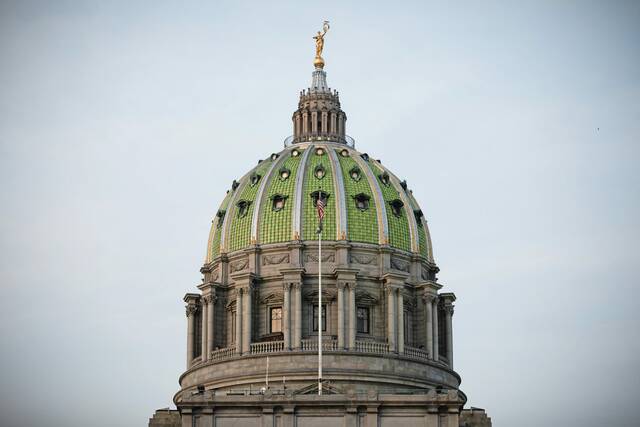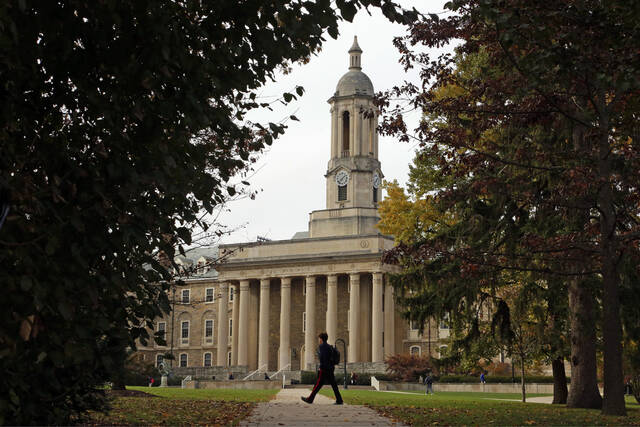Dozens of Penn State Law faculty are urging those weighing their school’s reunification with Dickinson Law in Carlisle to consider what Penn State University would lose if the combined entity lacks a significant University Park presence.
A statement endorsed by 42 of Penn State Law’s 51 fulltime faculty stopped short of asking university President Neeli Bendapudi to drop plans to bring the two separately accredited schools back together. Carlisle would be its primary location.
Instead, it focused on the benefits of teaching, learning and scholarship of having a law school on a sprawling research campus. Their school, established in 2006, and the accomplishments of its 2,500- plus graduates have added to Penn State’s global footprint, they said.
“We recognize that there is a cost to having law schools in two locations, but given the development of Penn State’s two law schools, it has been proven that both have added value,” read the statement.
Sent to university leaders Monday, it comes two weeks after Bendapudi announced she would recommend both schools be combined, citing the “extremely competitive legal education marketplace.”
Penn State is trying to close a budget deficit, though the president has indicated that is not the main reason for the move. A panel is being created to make recommendations in the spring.
Kit Kinports, Penn State Law’s Faculty Chair, said the move to a single school apparently is largely settled, so the statement focuses on helping shape what the combined school looks like and allay concerns.
Related:
• Citing competition and cost, Penn State looks to reunite its 2 law schools“What we wanted to do was disabuse people of the notion — including some of our own students — that the university had decided to close University Park,” she said.
Wyatt Dubois, a Penn State spokesman, reiterated the president’s comments two weeks ago pointing to quality and success of both schools and said “the panel, which will be balanced between representatives from the two law schools, is being formed to explore options and will take into account the strengths of both schools, which are many.”
Dickinson School of Law, founded in 1834, is Pennsylvania’s oldest law school. It merged with Penn State in 1997, giving the Commonwealth’s flagship university the opportunity to grant law degrees.
The move also left Dickinson’s future in question for a time as the university weighed moving the law school to University Park. But in 2006, Penn State Law opened at University Park, and the two campuses operated as a two-location law school until their separation into two, separately accredited law schools in 2014.
As of this fall, Penn State Law has 553 full-time and 10 part-time students, Dubois said. Dickinson has 282 full-time and no part-time students.
Thirty-six Penn State Law faculty included their names on the statement and six participated anonymously. It said University Park is a draw for law students and faculty interested in working across disciplines. It attracts international students who receive support from an already established community of learners from abroad. The statement pointed to Penn State’s master’s of law.
“The LL.M. program has produced hundreds of alumni in more than 90 countries, who now fill key positions in major U.S. and international law firms, government, the United Nations, NGOs, the judiciary, and law schools worldwide,” the statement read. “In addition, Penn State Law has maintained more global agreements and partnerships than any other unit at Penn State, helping the University to increase its global footprint.”
The statement said Penn State Law recruits nationally recognized scholars who had been teaching at more highly ranked law schools, but chose Penn State for the opportunity to join a law school and University Park’s wider scholarly community.
”It will be difficult for Penn State to retain many of these highly respected scholars unless there is a significant law school presence in University Park,” the faculty statement read.








